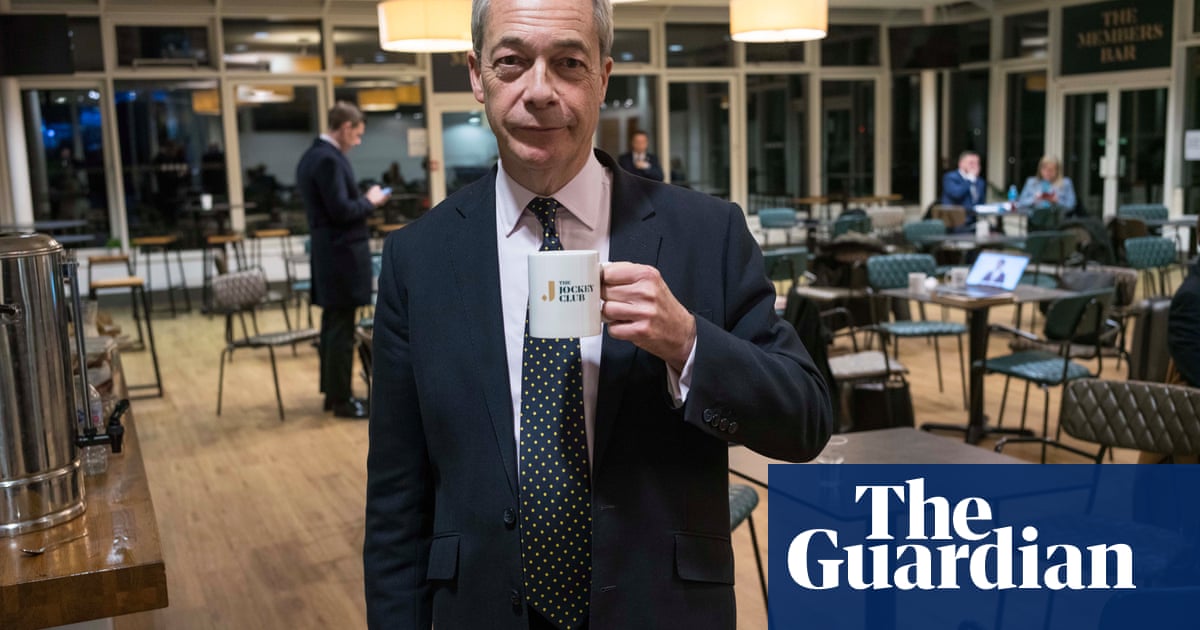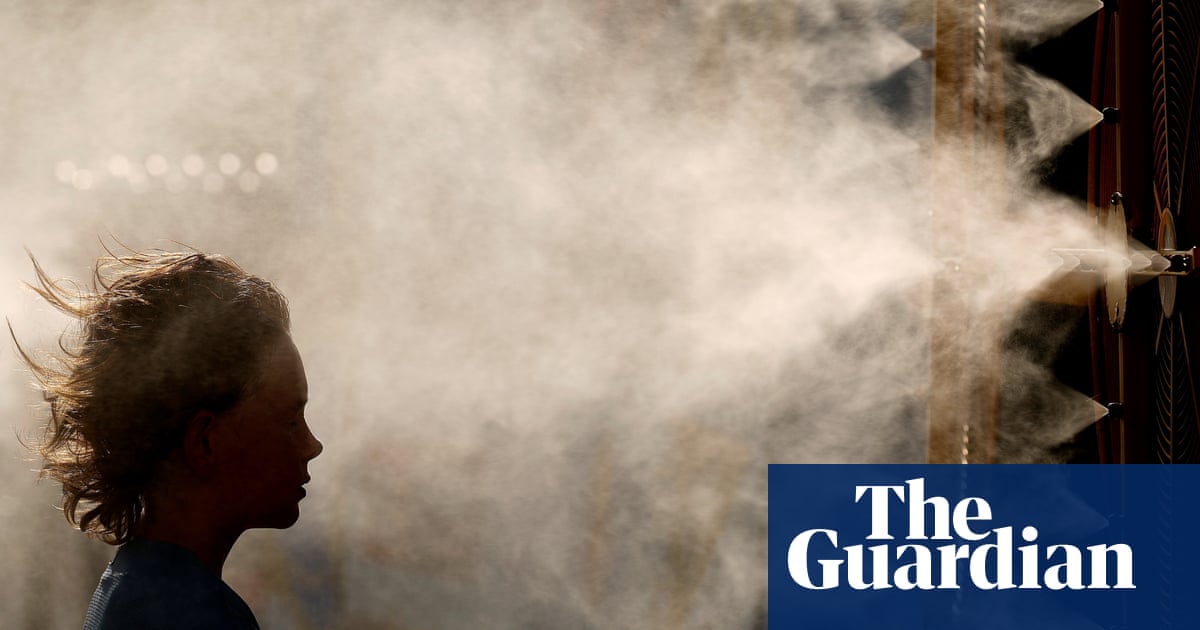This weekend, Atticus Sparks plans to attend a six-hour concealed weapons permit class. He’s not a gun person, but as an 18-year-old trans man, he’s concerned he might someday need to own one, “just in case”. Since Donald Trump’s election, Sparks has faced online threats of violence and sexual assault from the president-elect’s supporters.

“Hopefully I won’t ever need a gun,” Sparks, who lives in South Carolina, said. “But everyone here is so pro-gun. I work across from a gun store, and I always see people carrying around loaded rifles.”
Along with taking his concealed carry class, Sparks faces the more banal tasks of making sure all of his documentation is in order. This week, he met with an advocate about getting his name legally changed but was told that due to the sluggish pace of family court, he probably won’t get a court date until next summer.
An existential threat, and a bureaucratic nightmare: for trans people across America, Trump’s victory represents a terrifying acceleration of the discriminatory policies that conservative lawmakers have already put in place in states across the country.
Republicans spent almost $215m on anti-trans ads this election. (Sample line: Kamala Harris “is for they/them – not you”.) Trump’s official platform, Agenda 47, promises to “cut federal funding for any school pushing critical race theory, radical gender ideology, and other inappropriate racial, sexual, or political content on our children” and “keep men out of women’s sports”, a reference to trans women and girls playing on teams that correspond to their identity.
The president-elect has also proposed a ban on federal funding for gender-affirming care, and said he would push schools to “promote positive education about the nuclear family” – shorthand for an emphasis on conservative Christian gender roles and values in public classrooms.
Experts and advocates warn that Republican control in Washington DC could roll back LGBTQ+ rights decades, threatening trans healthcare, marriage equality and the overall safety of the queer community.
Facing this new reality, Alex, a teacher in Texas, reached out to a crisis hotline three times in the past week. “It’s sort of the most depressed I’ve been in a long time,” he said. “It’s like you get used to tolerating a certain amount of not OK, and having to hide and sort of being pushed down, but it feels like it’s hit a level where it’s almost intolerable.”
Though some of Alex’s co-workers know he is trans, his students do not. He considers himself “stealth” at work, which means he conceals his trans identity to fit in with cisnormative standards. (Because of this, Alex used a pseudonym in this piece.)
“The big thing people don’t recognize is that they most likely have interacted with a trans person without knowing,” Alex said. “I use the men’s locker room at the gym every morning, and no one gets hurt or upset. I guarantee for every single person, [Trump’s victory] is going to impact someone they love, or the loved ones of someone they love, and they just don’t know it.”

The Trevor Project, a non-profit focused on suicide prevention efforts for LGBTQ+ youth, reported a 700% increase in calls, texts and messages to its crisis hotline after election day. Youth experiencing thoughts of depression, self-harm and suicide are encouraged to contact the organization – though, according to 19th News, there are “long hold times at an especially vulnerable time for LGBTQ+ people”.
Corinne Goodwin, executive director of Eastern PA Trans Equity Project, wrote in an email that since the election, the non-profit had seen a 600% increase in calls to its infoline for people seeking resources and support. Attendance at peer-led support groups rose by 200%, and requests for assistance with gender or name change markers increased by 1,000%.
The day after the election, Goodwin said, the group received a call from a transgender person who lives in a very rural part of Pennsylvania. The caller said that four of their neighbors had come to their house the night before, pounding on their front door and threatening to assault them for being transgender. The person called the police, who refused to investigate, citing no proof of an incident.
“This is an example of what many transgender people fear, that not only will their rights be reduced or taken away, but that the most reactionary elements in our society will feel emboldened to harm them,” Goodwin wrote.
In Rochester, New York, Javannah J Davis leads Wave Women Inc, a non-profit supporting underserved Bipoc trans and gender non-conforming individuals. “The challenges are going to get worse before it gets better,” she said. “People are scared. That’s the main feeling going through the community: fear.”
Davis says her goal is to help as many trans people as possible navigate the serpentine process of legally changing their names before the end of the year.
Mike, a trans man in his 60s, leads support groups in Pennsylvania. “People talk about moving to another country, but the reality is that’s just not realistic,” he said. (Mike used a pseudonym and did not want his exact age printed to prevent being identified by his employer.)
Sparks, the 18-year-old, plans to move to a state that allows greater access to gender-affirming care. This year, South Carolina banned access to care for trans youth, also prohibiting public funds such as Medicaid from being used to provide healthcare for transgender people of any age.

South Dakota also restricts access to gender-affirming care for trans youth. So, in some ways, the morning after the election was “just another day for them”, says Morgan Peterson, a 25-year-old administrative assistant at Transformation Project Advocacy Network, which serves trans people in the state.
Peterson, who is non-binary, says many clients decided to move next door to Minnesota, a state with better healthcare options. “For me, I’m not on hormones, and I’m very fortunate, so I’m pretty determined to stay here and fight for people,” they said.
Zaya Perysian, a 22-year-old content creator from Los Angeles, renewed her passport this week. She has no plans to leave the country and considers herself somewhat buffered by her state’s blue status. But she wants to be prepared, just in case.
“It seems like we’re in the early stages of something much darker for the future of this country when it pertains to minority communities,” Perysian said. “The last time Trump won, we were like, ‘It’ll all be fine,’ and it mostly was. But this time, it’s different. There’s something that feels so sinister behind it. A lot of us just want to be prepared because you never know what type of legislation they are going to try to pass to erase us from public society, or history.”
Kendall, a 47-year-old from Pennsylvania, planned to marry her partner next summer. They imagined a big, fairytale wedding, maybe in Europe. But as the election approached, the couple, both trans women, decided they didn’t want to take their chances. They feared a Trump presidency could signal the end of marriage equality. They eloped in September.
“We had a few people over to our apartment and did it,” Kendall said. (She asked to use a pseudonym due to fears for her safety.) “We did it in our living room. People asked, ‘Was it nice?’ We tried to play it off like we wanted something intimate, but the real reason is we needed it to be legal.”
Now, Kendall wonders: “God knows how long we’ll be allowed to be married.”
Shane Whiteside, who is 30 and lives in South Carolina, also hopes to make it legal with his fiancee before Trump’s election. “I told her, I know we didn’t want to rush this, but I’m absolutely terrified that if I don’t get married to you right now, the state is not going to let me, because they’ll take away same-sex marriage,” he said.

In the days after the election, some lawmakers and pundits scapegoated transgender people for Kamala Harris’s loss. Such messaging echoes past retrograde thinking from John Kerry’s failed 2004 bid: at the time, politicians on both sides blamed the loss on the senator’s support for civil unions.
The US representative Seth Moulton, a Democrat from Massachusetts, told the New York Times: “Democrats spend way too much time trying not to offend anyone rather than being brutally honest about the challenges many Americans face. I have two little girls, I don’t want them getting run over on a playing field by a male or formerly male athlete, but as a Democrat I’m supposed to be afraid to say that.”
Trans individuals are already more likely to experience gender-based violence, poverty, and housing insecurity than cis Americans. Comments like Moulton’s add to the pain they feel as they prepare for a hostile administration.
“It’s really a bunch of bullshit coming from both sides when it pertains to trans people,” said Perysian. “We’re just exhausted. We’re just trying to find our own American dream here, and unfortunately our future in this country has become less and less bright. I’ve heard a lot of trans people say that after this election, it feels like our best days are behind us.”
Now, trans individuals cling to any shreds of hope they can find. Alex felt it when his co-workers hugged him the morning after Trump’s win. Mike feels it at his trans support group. Kendall feels it when she watches old clips of Mr Rogers being a good neighbor.
Sparks relates to a quote he saw on social media this week: “For every bigot, there’s going to be an ally.”
“Community and trans people don’t just go away,” Sparks said. “They may take it out of schools and stuff, but it’s not like we’re going to disappear. We just won’t have a word for what we’re feeling because they won’t teach it to us.”
For Perysian, though, “It’s not about hope. It’s more about waiting and seeing.”

.png) 1 month ago
13
1 month ago
13













































